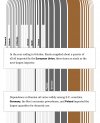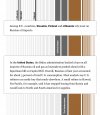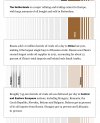For starters, what is the quickest way to get us off Russian gas and allow us control over our own energy supply? By pressing ahead with building the 649 onshore wind and solar projects that already have planning permission in the UK. They could come on stream within two years and would fully replace Russian gas imports, but are being held back by the de-facto moratorium imposed by the government in 2015, when it introduced draconian planning restrictions for new windfarms and cut onshore windfarms off from investment in renewables. Fracking would take at least a decade to arrive, as the prime minister was warned this week by his own business secretary, and the average time between new exploration and production in the North Sea is 28 years.
It’s the same story on price. The lowest-cost fuels available are now wind and solar. Even before Russia’s invasion of Ukraine sent gas prices spiralling further, generating energy from gas was four times more expensive than new solar or wind. And because we operate in an integrated gas market, we pay the same price for gas from domestic sources as we do for imports. Of course, the North Sea will continue to play a role as we transition to net zero, but whatever the level of our domestic supply, it cannot be immune from international price shocks.
Fracking was halted because it was considered too dangerous by Conservative ministers. And on climate, the case the UK made at Cop26 was that the world needed to get off fossil fuels. That is indeed the central challenge of net zero. The idea that reverting to business as usual is somehow consistent with tackling the climate crisis is therefore nonsense.
There is only one way to meet all three crises of security, price and climate together: to not slow down on the drive towards zero carbon, but to turn the current saunter into a sprint.
It is time to finally take seriously the Cinderella of this government’s energy policy, which is home insulation and energy efficiency – because the best way of reducing our demand for fossil fuels is to reduce energy demand overall.
Upgrading the 19m cold, draughty British homes would cut energy bills by an average of £400 every year and our gas imports by 15%. But home insulation rates have plummeted over the past decade, and emissions from buildings are as high now as they were in 2015.
We need to push further and faster on every form of renewables. Get rid of the moratorium on onshore wind. Reignite the push towards solar power that I started when I was the energy secretary, but which was stamped out by government policy in 2015. Embrace tidal power and hydrogen.
Finally, nuclear power needs to play a supporting role in the energy mix. The independent Climate Change Committee says that new nuclear stations are needed to achieve our net zero targets. During my time as the energy secretary, I identified the potential sites for new nuclear plants, but 12 years on the government has not completed any new nuclear stations. We should set a clear deadline on financial close for Sizewell C.

While the Tories dawdle over Russian gas, we have a £28bn plan to make energy cheap – and green | Ed Miliband
Insulating homes and investing in wind and solar are the only solutions to the energy crisis. But Johnson is busy pandering to climate deniers, says the Labour MP Ed Miliband
This country
 se on meistä niin paljon jäljessä mutta sentään heillä on samoja aatoksia. Ydinvoimasta ei voi päästä eroon, vaan sitä pitää lisätä. Sen voi tehdä turvallisemmin kuin kylmänsodan systeemeillä. Avaruuteen mennessä ydinvoima on yksi niistä ainoista, mikä voi tuottaa lämpöä ja voimaa eri paikkoihin. Minireaktoreita voidaan käyttää tuottamaan voimaa pienille kylille ja niin eteenpäin. Teknologialla on paljon annettavaa millä kaasusta pääsee irti, mutta britit on niin vaiheessa monessa suhteessa.
se on meistä niin paljon jäljessä mutta sentään heillä on samoja aatoksia. Ydinvoimasta ei voi päästä eroon, vaan sitä pitää lisätä. Sen voi tehdä turvallisemmin kuin kylmänsodan systeemeillä. Avaruuteen mennessä ydinvoima on yksi niistä ainoista, mikä voi tuottaa lämpöä ja voimaa eri paikkoihin. Minireaktoreita voidaan käyttää tuottamaan voimaa pienille kylille ja niin eteenpäin. Teknologialla on paljon annettavaa millä kaasusta pääsee irti, mutta britit on niin vaiheessa monessa suhteessa.






 Washingtonpost
Washingtonpost









 ).
).